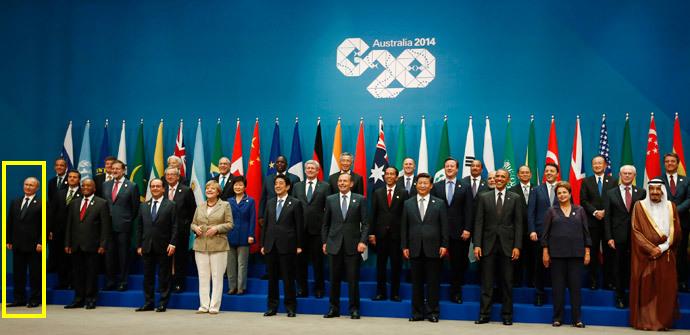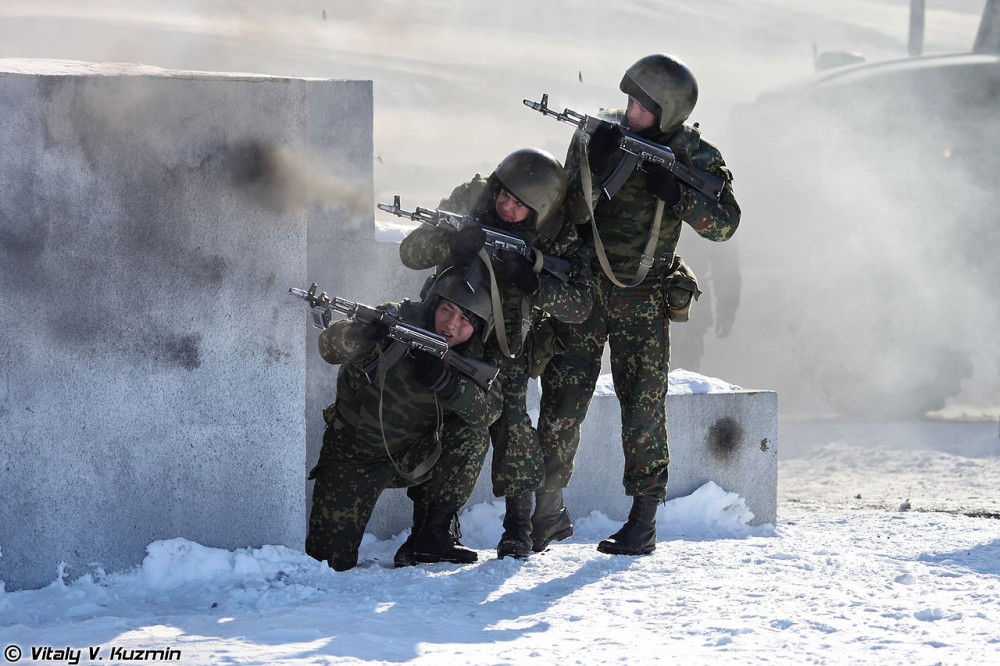Most analysts have suggested that sanctions and international isolation were a cost Vladimir Putin was willing to pay in order to get his way in Ukraine, but Andrey Lipsky, an editor of “Novaya gazeta
,” says that is exactly backwards: the Kremlin leader wanted isolation and launched his Ukrainian campaign to get it.
Indeed, he suggests, Putin’s comments to the FSB leadership last week confirm that interpretation because they suggest that the Russian president is worried that further contacts with the outside world could lead to a repetition of the destabilizing protests of 2011-2012 during the upcoming 2016 and 2018 election seasons.
And to prevent that from happening and thus to ensure the continuation of his own power, the “Novaya gazeta” editor argues, Putin is quite prepared to suffer what he believes will be the short-term costs of sanctions and isolation in order to ensure his own long-term political survival.
Since the Crimean Anschluss and the West’s response
, Lipsky points out, people in both Russia and Western capitals have been asking why – why did Putin need to take a step that he might have been expected to understand in advance would entail so many costs and bring what seems to others so few benefits?
Clearly, most of the propagandistic memes – “Russia wants to restore the empire,” “It must defend Russian speakers from the fascist junta,” and “a desire to seize the territories of others is in Russia’s blood” – are now explanations but rather something that must be explained, he continues.
What else is left? Preventing Ukraine from joining NATO
and the West establishing a base in Sevastopol? “Strengthening the security of the country? The growth of Russia’s influence in the world? The rallying of the ‘Russian world’? [or] Consolidation in the framework of a ‘Eurasian project’?
Very early on, Lipsky says, it became clear that Putin’s policies in Ukraine had done Russia more harm than good, that Russian influence in the world had declined, its security had been compromised, that NATO had been reinvigorated under expanded American influence, and the status of Russian speakers abroad had gotten worse.
All this happened not because of the West’s desire to box Russia in but because by Putin’s actions in Crimea and Ukraine more generally, “Russia violated the [existing world] order, and the others simply have been defending themselves.” And they now view Moscow as a dangerous source of instability, “unpredictable and unprofitable.”
Given this balance sheet, the commentator says, many have simply decided that Putin miscalculated, but quite possibly there is a better explanation. His actions in Ukraine, Lipsky says, are “only a cover for something more essential for the ruling political command in Russia” – the preservation of its political power.
The Kremlin leader’s remarks to the FSB last week provide a clear indication of this. He talked about “attempts by ‘Western special services’ to use Russian NGOs and ‘politicized unions’ to discredit the authorities and destabilize the situation in Russia in the course of the 2016 Duma and 2018 presidential campaigns.”
In thinking about these words, it is important to remember that “precisely injustice and falsifications during the Duma elections of 2011 in favor of the party of power led angry citizens in Moscow and certain other major cities into the streets,” something that clearly frightened Putin and his entourage and led to a tightening of the screws.
Increasingly, this campaign presented the opponents of the regime as “agents” of the West, something that required presenting the West as an external enemy. Otherwise the moves against the regime’s domestic opponents could go only so far, at least by making use of this ideological paradigm, Lipsky suggests.
But until Crimea, the Kremlin lacked one thing to ensure acceptance by the Russian population of the equating of the opposition with Western agents and that was “the mass mobilization and rallying of the population around the existing authorities. The Ukrainian crisis,” Lipsky says, “and ‘the return of Crimea’ provided this happy possibility.”
Whether Putin can maintain that without doing something more for any length of time remains an open question, but it is clearly the case, the “Novaya gazeta” editor says, that the Kremlin is going to do everything it can to maintain it through the 2016-2018 “political season by propaganda, the actions of the force structures, and new legislation.”
Obviously, “total isolation would not be profitable” for Russia even in pursuit of that goal, Lipsky says. “But partial, with a limitation of harmful contacts and with sanctions which mobilize the population … and explain why the economic situation is deteriorating … is completely useful.”
And indeed, it may “at the present stage only strengthen the arguments of the regime which is seeking to go into the new political season” without having to face any real danger that Putin and his regime will be challenged.




